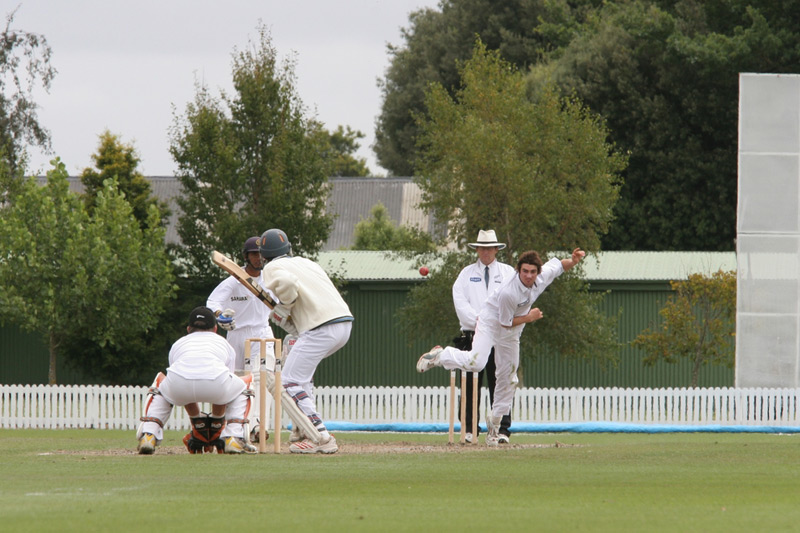By Joel Dubber
(Reuters) - Zimbabwean cricket has struggled since the turn of the century against political, racial and financial turmoil. The country’s biggest battle now is on the field, where they are fighting to achieve greater consistency in their performances.
The team experienced a marked decline after a string of impressive victories in 2013-14, which included wins over Pakistan in a test match and Australia in a one-day international.
In 2017, Zimbabwe Cricket (ZC) organised matches against Afghanistan, Scotland and the Netherlands and in 10 games against these low-ranked teams, Zimbabwe were beaten five times.
“We have not had as many fixtures as we would have wanted since the Future Tours Programme was changed in 2014”, Darlington Majonga, ZC’s communications manager, told Reuters.
“In an effort to fill in the gaps in our schedule, we have been engaging the available teams - including the top associate sides. Getting more game time will help us to find our feet as we continuously work hard to establish a strong and competitive side capable of challenging for top honours in cricket.”
Despite suffering embarrassing losses on their European tour, the match practise had a positive effect and Zimbabwe this week claimed their first series victory in Sri Lanka, beating the island nation 3-2 in a one-day international series.
CHANGING LANDSCAPE
In June, the International Cricket Council (ICC) awarded test status to Ireland and Afghanistan, bringing the number of teams playing cricket’s longest format to 12.
Test cricket has been struggling to compete with the more consumer-friendly 20-over format. Should the ICC establish a structured test match league it is unlikely to feature Ireland, Afghanistan and Zimbabwe.
For Zimbabwe, this would result in fewer test fixtures against their traditional rivals but it is inevitable that new rivalries will form.
“The elevation of Ireland and Afghanistan to test status is a welcome development that will tremendously boost the game of cricket not just in the two respective countries but the world over,” Majonga said.
“The prospect of securing fixtures that have been very scarce in recent times is particularly exciting.”
Strong performances against their new equals will provide Zimbabwe with a viable pathway back into the major league.
As the country’s test status is secure for now, it is incumbent upon ZC to lobby its foreign counterparts to ensure high-profile fixtures still happen, even if only occasionally, by engaging teams touring South Africa to play a test match in Zimbabwe as preparation.
Zimbabwe's modern era began in 2004-05 in the aftermath of a clash between the national cricket board and senior white players.
After losing their core of senior players, Zimbabwe rebuilt around prodigious young talent, namely Tatenda Taibu, Brendan Taylor and Graeme Cremer – all of whom went on to captain their country.
The strength of the team has consistently been undermined by the trend of emerging young players opting to move abroad.
PRIMARY BENEFICIARY
England has been the primary beneficiary of this with Tom Curran and Gary Ballance notably representing their newly- adopted country at international level.
Sean Ervine, Anthony Ireland, Kyle Jarvis and Brendan Taylor all retired prematurely from international cricket to play at English county level.
Zimbabwe’s biggest on-field problem is inconsistency, usually caused by over-reliance on their best player.
Andy Flower, at one time the world's top-ranked test batsman, exemplified this in the 1990s and early 2000s. In more recent times this responsibility has fallen to Taylor, Taibu and Heath Streak.
Current captain Cremer made his first test century against Sri Lanka in 2016, an admirable performance were he a specialist batsman but even more impressive given that he is also his team's premier leg-spinner.
ZC has identified that a deeper talent pool is required and established a new cricket academy.
“As a convenor of selectors I had a small player base to choose the national team from,” said Taibu, who has moved into administration since retiring.
“As a way of increasing my player base I thought it’s imperative to have an academy which will be able to increase those numbers”.
Ireland and Afghanistan's elevation to test status offers Zimbabwe an opportunity to re-establish themselves.
"Zimbabwe just needs to win matches to bring in a culture of success on the cricket field which will relate to the fans, stakeholders and filter down through to grassroots level," Kenyon Ziehl, Zimbabwe's former convenor of selectors, told Reuters.
Playing less test cricket would safeguard Zimbabwe's future as a test-playing nation if it means the matches they do play result in more victories.
"We need to start again, win matches and give confidence to players and the cricket fraternity." Ziehl said.
